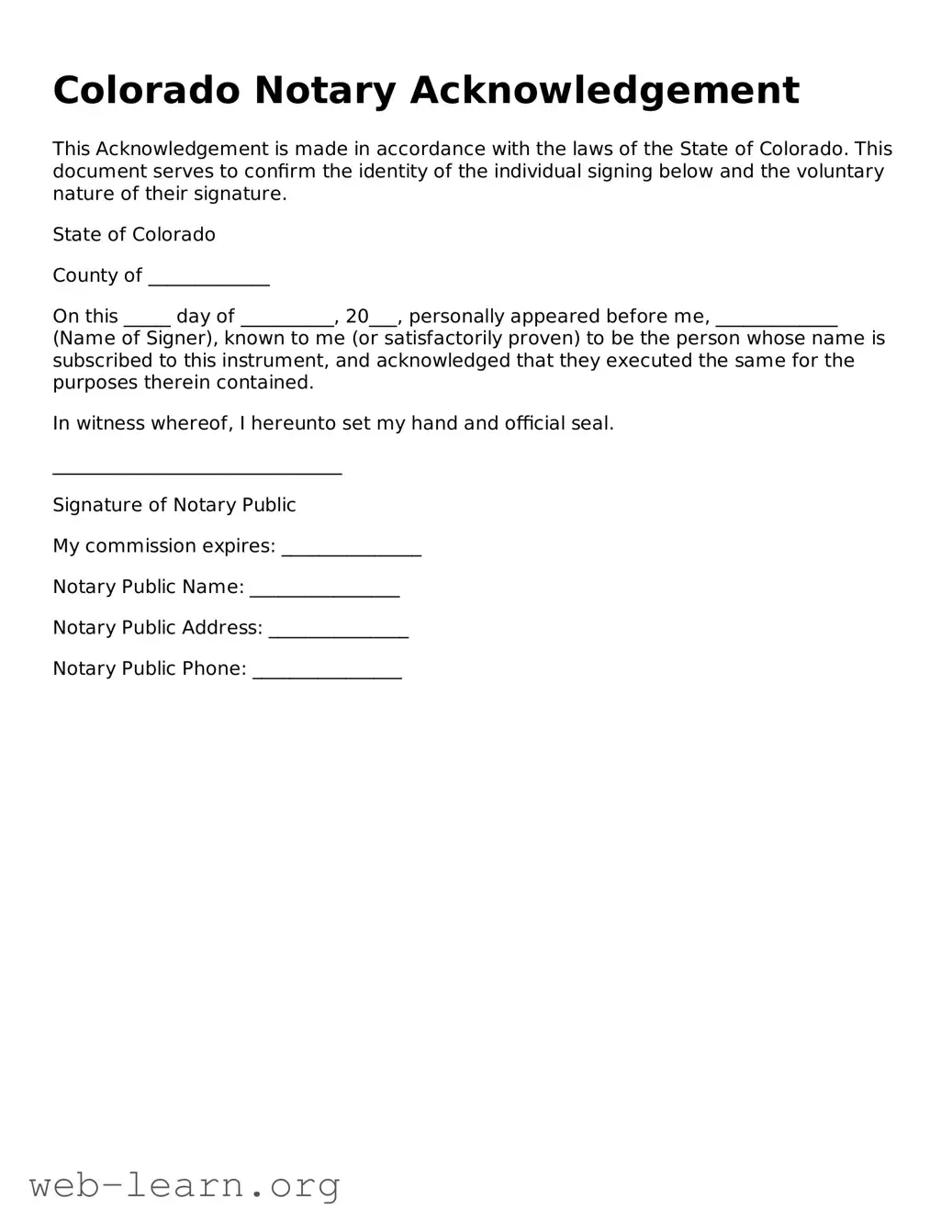Colorado Notary Acknowledgement
This Acknowledgement is made in accordance with the laws of the State of Colorado. This document serves to confirm the identity of the individual signing below and the voluntary nature of their signature.
State of Colorado
County of _____________
On this _____ day of __________, 20___, personally appeared before me, _____________ (Name of Signer), known to me (or satisfactorily proven) to be the person whose name is subscribed to this instrument, and acknowledged that they executed the same for the purposes therein contained.
In witness whereof, I hereunto set my hand and official seal.
_______________________________
Signature of Notary Public
My commission expires: _______________
Notary Public Name: ________________
Notary Public Address: _______________
Notary Public Phone: ________________
